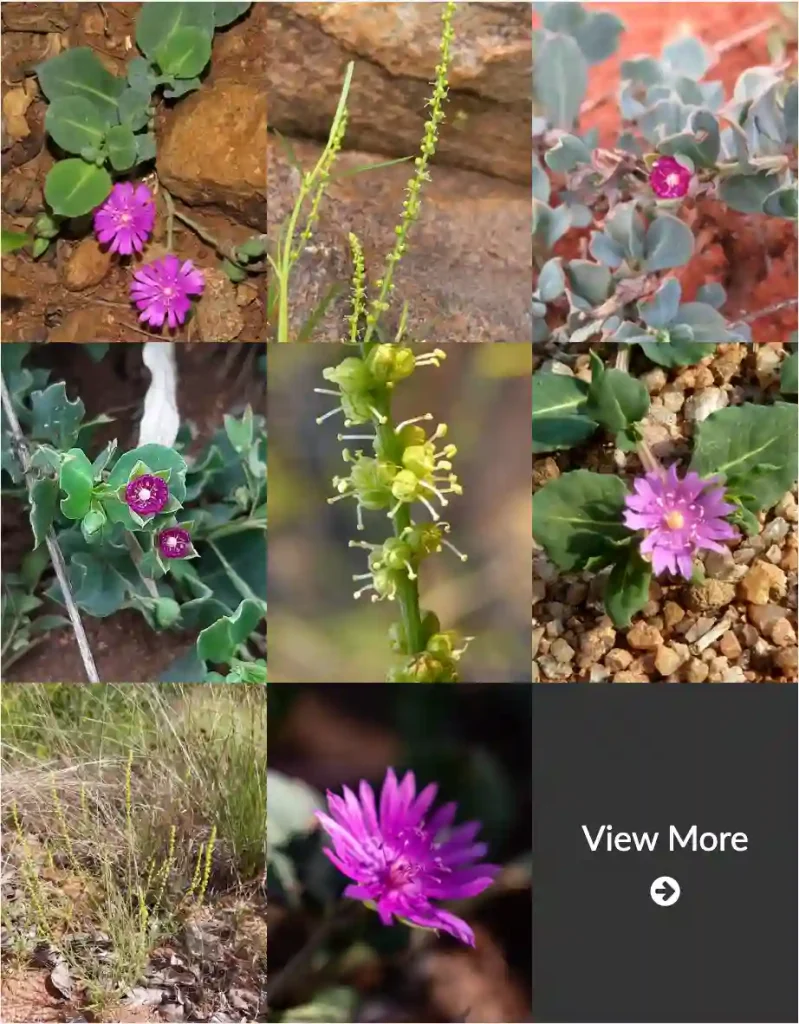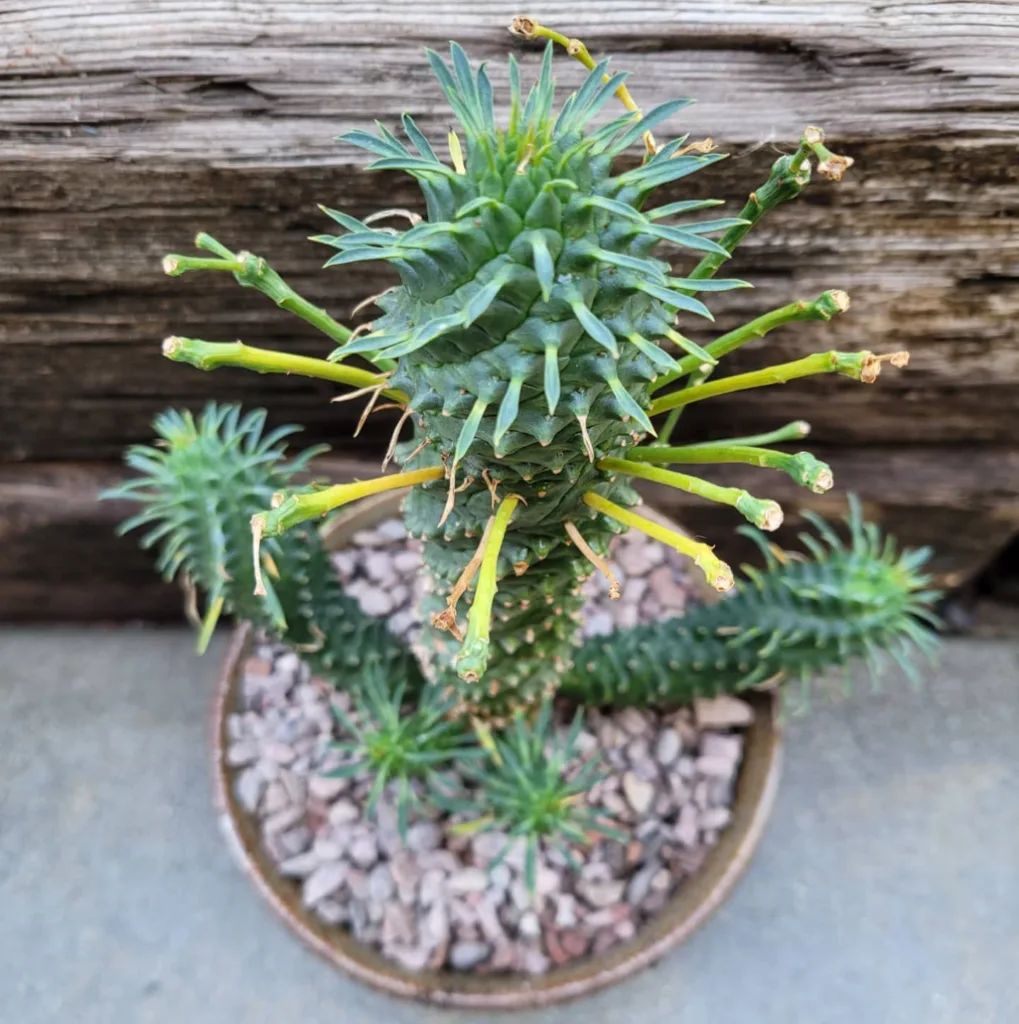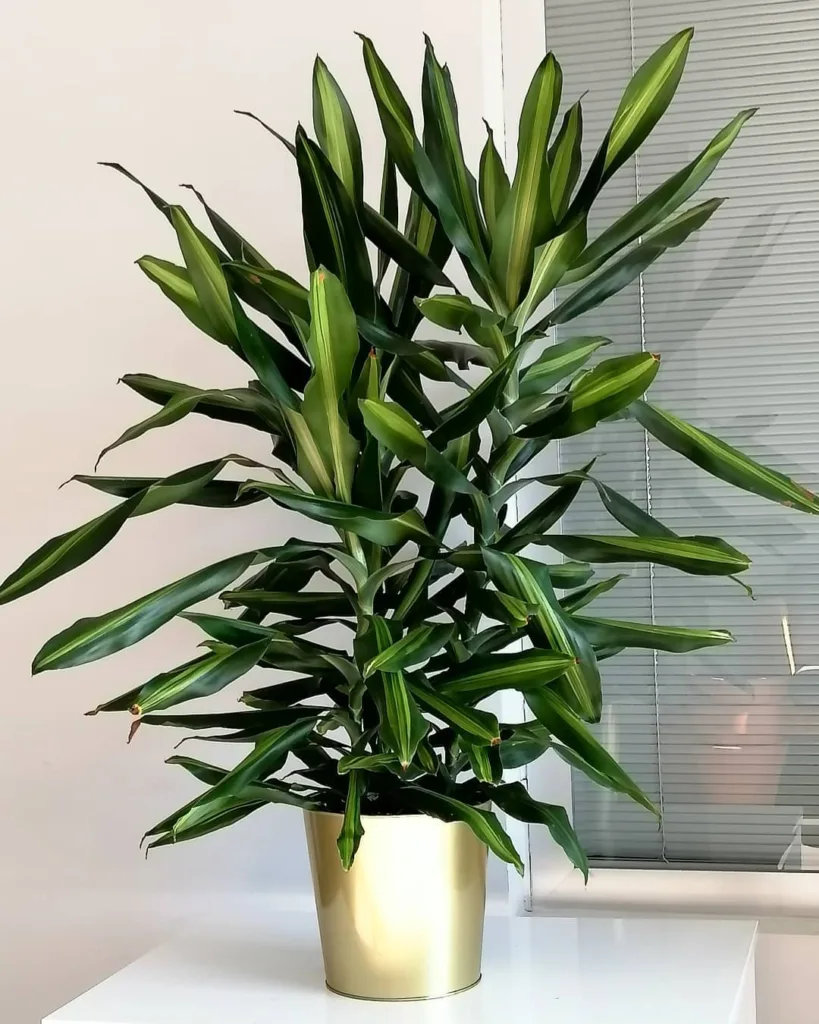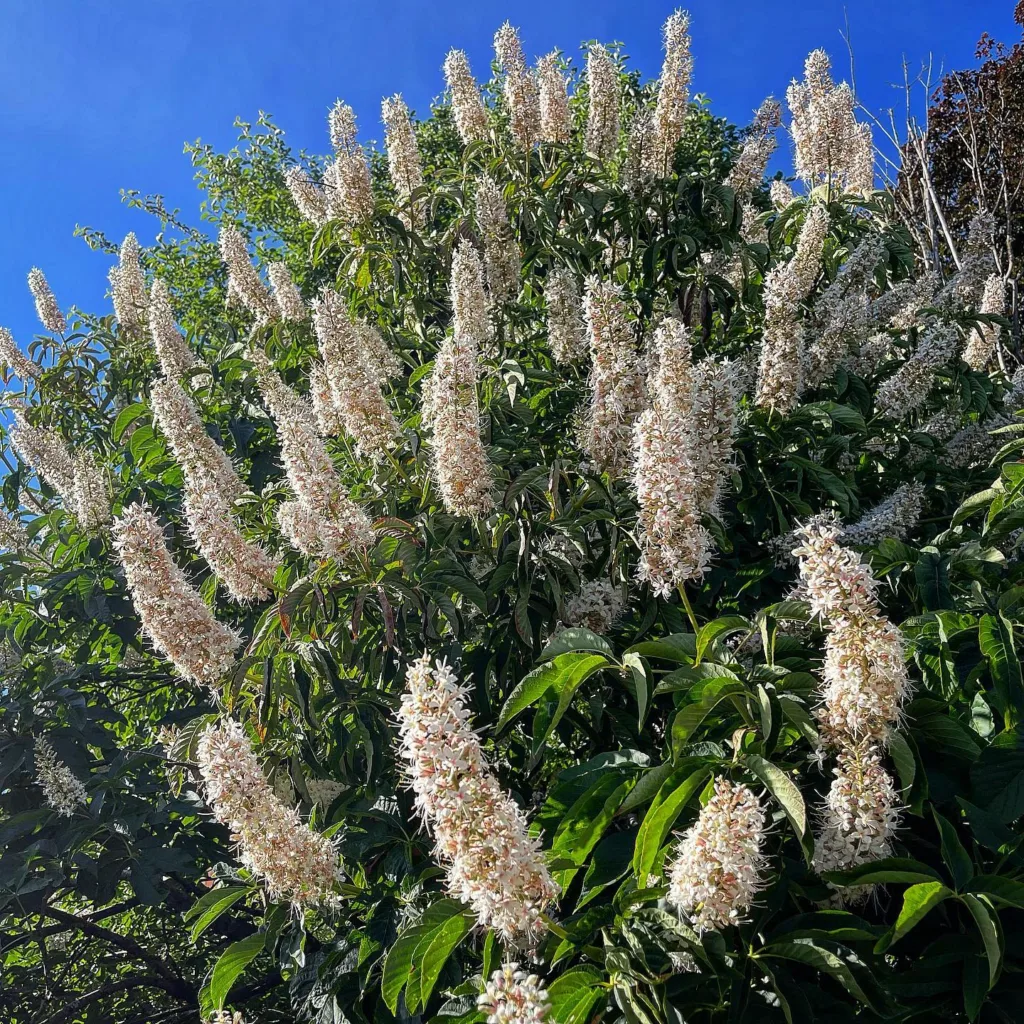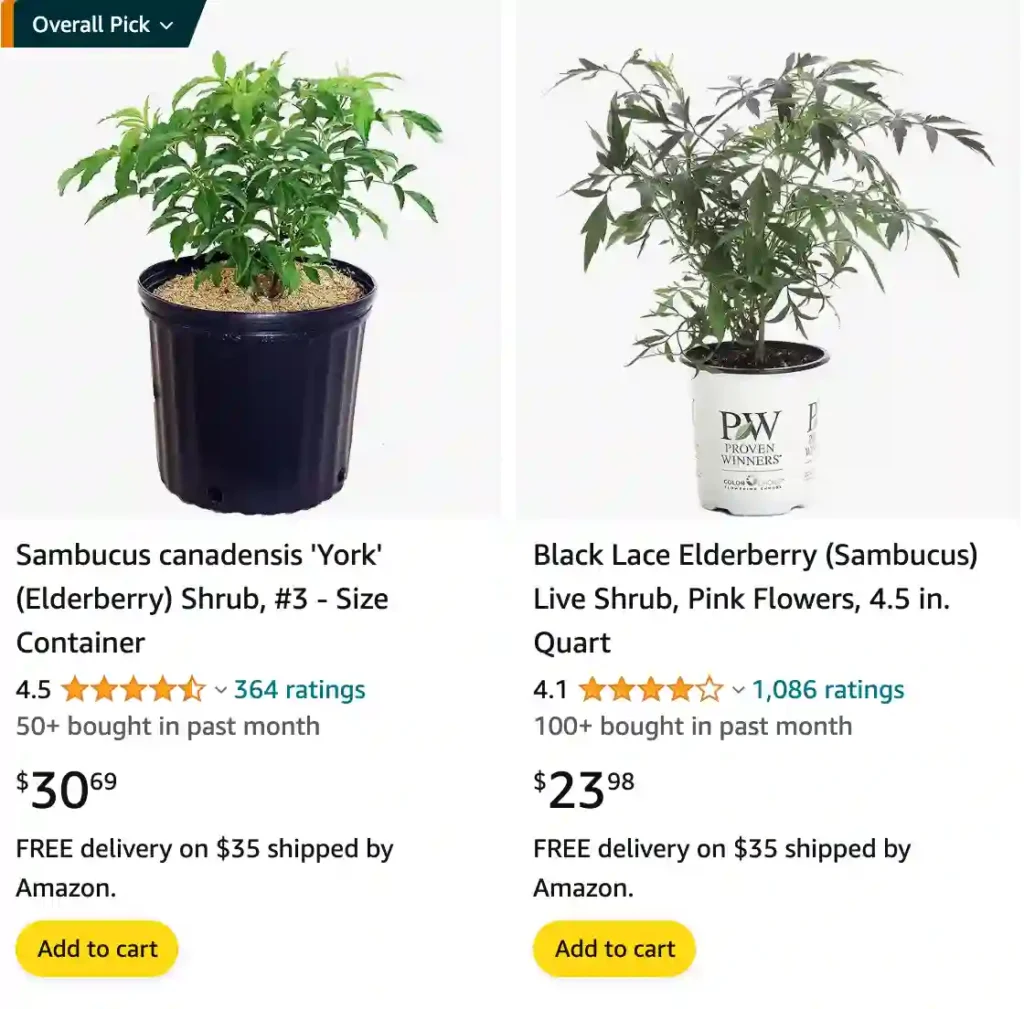
A Diverse Family Tree
The Sambucus genus is a member of the Viburnaceae family, and it boasts a diverse array of species, ranging from shrubs to small trees. These plants are found in temperate and subtropical regions across the globe, often gracing woodlands and hedgerows with their presence. Here are:
- Sambucus adnata – Found in the Himalayas, this elderberry has small, creamy-white flowers and red berries often used in traditional medicine.
- Sambucus africana – Native to Africa, this species produces dark berries and is often used in traditional remedies for various ailments.
- Sambucus australasica – Known as the yellow elderberry, this Australian native has bright green foliage and yellow berries.
- Sambucus australis – A South American elderberry, it features white flowers and black berries, commonly used in folk medicine.
- Sambucus canadensis – Commonly known as American elderberry, it produces edible dark purple berries used in syrups and jams.
- Sambucus cerulea – Known as blue elderberry, this species produces blue-purple berries and is native to western North America.
- Sambucus ebulus – Also called dwarf elder, this European species has a smaller growth form and toxic berries not used in food.
- Sambucus gaudichaudiana – This Australian elder has creamy flowers and small black berries, thriving in rainforest areas.
- Sambucus javanica – Native to Asia, this elderberry has fragrant white flowers and small red berries used in traditional Asian medicine.
- Sambucus kamtschatica – Found in the Kamchatka region, this elderberry has clusters of dark berries and a hardy nature suited to cold climates.
- Sambucus lanceolata – A rare species native to the Canary Islands, it has elongated leaves and small clusters of black berries.
- Sambucus mexicana – Also known as Mexican elderberry, it is drought-resistant and produces clusters of dark blue berries. Plant FAQs: Sambucus Mexicana
- Sambucus nigra – Known as European elder, this widely cultivated species produces black berries used in culinary and medicinal applications.
- Sambucus palmensis – An elder species from the Canary Islands, it has white flowers and small black berries, used for ornamental purposes.
- Sambucus pendula – This weeping elderberry is prized for its ornamental appeal due to its pendulous branches and vibrant green leaves.
- Sambucus peruviana – Native to the Andean region, this elder has yellowish flowers and is often grown in high-altitude climates.
- Sambucus racemosa – Known as red elderberry, this species has red berries and is native to North America and parts of Europe.
- Sambucus sibirica – Native to Siberia, this elderberry thrives in cold regions and produces clusters of red berries.
- Sambucus sieboldiana – An Asian elder with large, compound leaves and dark purple berries, found across Japan and Korea.
- Sambucus × strumpfii – A hybrid species, it is cultivated primarily for its unique foliage and ornamental appeal.
- Sambucus tigranii – This rare species from Armenia has dense clusters of white flowers and small black berries.
- Sambucus wightiana – Found in the Himalayan region, it has white flowers and black berries and is sometimes used in traditional medicine.
- Sambucus williamsii – A Chinese elderberry with medicinal properties, often used in traditional Chinese herbal remedies.
More Than Just a Pretty Face
Elderberries and elderflowers have been used for centuries for both culinary and medicinal purposes. The berries are rich in antioxidants and vitamins, and they’re often used to make jams, jellies, wines, and syrups. Elderflower cordial, a refreshing drink made from the fragrant blossoms, is a popular summer beverage.
Traditional medicine has also recognized the potential health benefits of elder. Preparations made from the berries and flowers have been used to treat colds, flu, and other ailments. While scientific research is ongoing, some studies suggest that elderberry may indeed have immune-boosting and antiviral properties.
FAQs
What is elderberry good for?
Elderberry has been my go-to for boosting my immune system, especially during cold and flu season; it seems to help me recover more quickly from illnesses.
How to make elderberry syrup?
Making elderberry syrup is a fun, hands-on process for me: I simmer dried elderberries with water, then strain and sweeten the mixture with honey, creating a delicious and health-boosting syrup that I store in the fridge.
What does elderberry taste like?
Elderberries have a tangy, slightly sweet flavor with a hint of earthiness, which makes them quite unique in taste.
Is elderberry safe during pregnancy?
I personally avoided elderberry supplements during pregnancy, as it’s always better to be cautious with herbal remedies in such sensitive times.
Where to buy elderberry?
I’ve found elderberry products at health food stores and online, where there’s a decent selection of syrups and capsules.
How much elderberry per day?
From what I’ve tried, about 1 to 2 teaspoons of elderberry syrup daily seemed to be a reasonable amount for health benefits.
What does an elderberry bush look like?
Elderberry bushes can be quite striking with their clusters of small white flowers and dark purple berries, adding a nice touch to any garden.
Does elderberry make you sleepy?
I didn’t notice any drowsiness after consuming elderberry, so it’s not something that tends to make you sleepy.
How to grow elderberry?
Growing elderberry has been straightforward for me; it thrives with good sunlight and regular watering in well-drained soil.
Is elderberry poisonous?
Despite its rich color and distinct look, elderberry is not poisonous when used correctly, but raw berries can be toxic if eaten in large quantities.
Can dogs have elderberry?
I’ve kept my dogs away from elderberry as a precaution, since their digestive systems are more sensitive to certain berries.
How to make elderberry wine?
Making elderberry wine was a fun experiment; I followed a basic wine recipe, adding elderberries to ferment for a unique homemade wine.
Does elderberry help with allergies?
I didn’t find elderberry to be a miracle cure for allergies, but it did seem to provide some relief during allergy season.
What color is elderberry?
Elderberries are typically a deep purple or black, which gives them a striking color when ripe.
What does elderberry smell like?
The smell of elderberry is subtly fruity with an earthy undertone, which is pleasant and not overpowering.
Can chickens eat elderberry?
I’ve kept chickens away from elderberries as a precaution, as I’m not sure how they would react to the berries or leaves.
Can you grow elderberry in a pot?
Growing elderberry in a pot is possible, but it’s a bit of a challenge since they prefer space and deep soil to really flourish.
Does elderberry help with sore throat?
I’ve found that elderberry syrup is soothing and does seem to help ease a sore throat, offering a natural remedy for minor throat discomfort.
Elderberry vs Pokeberry
In my garden, elderberries have always been a reliable, productive shrub that delivers beautiful clusters of berries, while pokeberries have a more wild, unpredictable nature and their vivid, inky berries are less manageable but fascinating to observe.
Elderberry vs Elderflower
I find elderflowers to be a delicate, fragrant treat in my homemade syrups and teas, whereas elderberries give a more robust, tart flavor in jams and wine, each bringing a unique aspect to my kitchen creations.
Elderberry vs Pokeweed
Elderberries have a consistent, familiar taste that I can rely on for my annual preserves, whereas pokeweed’s berries are something I admire from afar; their toxicity keeps me from experimenting with them.
Elderberry vs Blueberry
Elderberries offer a bold, tart flavor in my recipes, which contrasts with the sweet, juicy burst of blueberries that are perfect for my breakfast smoothies and muffins.
Elderberry vs Echinacea
I use elderberry for its general immune support and cold relief, while echinacea is my go-to for a more targeted boost during the onset of colds, each serving its purpose in my herbal toolkit.
Elderberry vs Blackberry
Elderberries bring a distinctive, tangy taste to my jams and wines, while blackberries offer a sweet, juicy flavor that’s perfect for pies and fresh eating, each berry finding its place in different recipes.
Elderberry vs Huckleberry
Elderberries have a strong, tart punch that’s great for syrups, whereas huckleberries are a rare treat with a more delicate, slightly sweet flavor that I savor when I can find them.
Elderberry vs Mulberry
I appreciate elderberries for their consistent yield and medicinal benefits, but mulberries offer a unique, sweet taste and beautiful purple hue that makes them a special addition to my fruit collection.
Elderberry vs Poison Hemlock
Elderberries are a safe, beneficial plant for my garden, while poison hemlock is a dangerous and unwelcome presence that I avoid entirely, ensuring it’s never a risk to my plants or family.
Elderberry vs Sumac
Elderberries add a tart flavor that’s perfect for preserving, while sumac’s tangy, lemony zest is a delightful addition to my spice cabinet for seasoning meats and vegetables.
Elderberry vs Black Currant
Elderberries are my go-to for robust syrups and jams, but black currants offer a rich, tart flavor that’s perfect for making a distinctive, flavorful jelly that I enjoy during the winter months.
Elderberry vs Chokeberry
Elderberries are a staple in my herbal remedies and preserves, while chokeberries are less commonly used but provide a bold, astringent flavor that I experiment with in unique recipes.
Elderberry vs Chokecherry
Elderberries are my preferred choice for their versatility in syrups and jams, while chokecherries, with their tart and sometimes bitter flavor, are a more challenging but rewarding fruit for making unique preserves.
Elderberry vs Water Hemlock
Elderberries are a reliable and beneficial addition to my garden, whereas water hemlock is a toxic plant that I avoid entirely, keeping my garden safe and healthy.
Elderberry vs Zinc
Elderberries are a key part of my natural approach to boosting immunity, while I use zinc supplements when I need a more targeted, quick boost during cold season, each complementing the other in maintaining my health.
A Personal Connection
Although I can’t personally experience the joy of foraging for elderberries or the satisfaction of creating a homemade elderflower cordial, I can still appreciate the beauty and utility of this remarkable genus. Learning about the different species, their unique characteristics, and their diverse uses has been a rewarding journey.
Perhaps this exploration has even inspired you, the reader, to learn more about the Sambucus genus. Maybe you’ll even encounter an elderberry bush in your own neighborhood and take a moment to appreciate its natural beauty and rich history.
